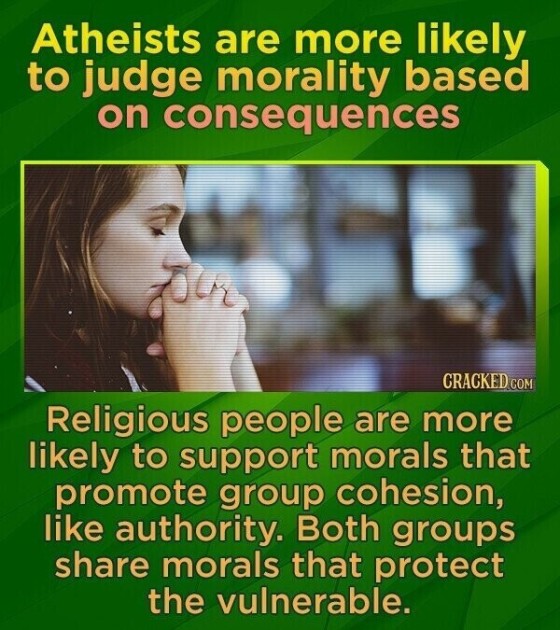2023.09.30
By analyzing the beliefs of nearly 5,000 people in the United States and Sweden, he found that atheists and theists share a number of moral values: Both groups fervently believe in fairness, liberty (including freedom of belief), and the importance of protecting the vulnerable, and both groups hold surprisingly strong bents toward rationality and evidence-based knowledge.
Where they differ is revealingStåhl suggests that this duo of differences may fuel the widespread stereotype that atheists lack a moral compass: They do, in fact, have quite strong morals, but fail to show reverence for the authority and holiness that believers hold dear, while evaluating morality case by case based on consequences. "They are less inclined than religious people to view [these] as relevant for morality," said Ståhl in a news release.
- Theists are likely to support morals such as reverence for authority, loyalty, and sanctity, which all fuel group cohesion (versus individuality).
- Atheists tend to decide whether or not something is moral by the consequences of a behavior, rather than the morality of the action that caused it (for instance, the common atheist bent that sex acts are fine as long as they're consensual and no one gets hurt).



Last 4 are from Daveed's 60th Birthday party, quite the shindig!

